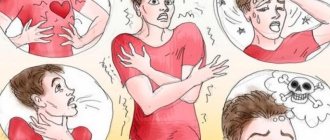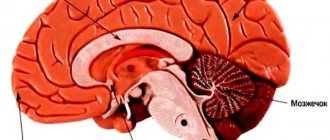Internal anxiety, the difficulties of relationships, haunting failures and failures, psychosomatic diseases that come from nowhere - all this interferes with life, does not allow one to believe in the future and respect oneself, causes not only mental, but sometimes physical pain, and can lead to despair and depression. At all times, mental restlessness, confusion of thoughts and feelings have brought torment to a person and led him to seek help. It was provided by priests and monks, confessors and simply close friends. Today, anyone in need of such support can seek, among other things, professional psychological help .
Those who decide to turn to a psychologist or psychotherapist for the first time have many fears and questions: how they will work with him, what this work consists of, whether he will fall under a kind of “X-ray” that will highlight what a person is not ready to show to another , what diagnosis will be given to him. Work experience shows that all these worries recede into the background, bringing forward a great desire to speak out, to be heard, understood and to receive help - relief from internal pain.
Help from a psychologist is, first of all, an opportunity to get rid of the feeling of loneliness when you are left alone with your problems, an opportunity to talk about them openly, without fear of negative value judgments. After all, the presence of a problem does not characterize you as “bad” or “wrong”, but only speaks of temporary inability, the inability to recognize its true causes and see solutions, which, as a rule, go beyond the usual ideas and patterns of behavior.
An open, confidential conversation about the complexities of life and the feelings experienced, a joint analysis with a psychologist of past events and the present that follows them, the choice of solutions that can resolve a painful situation and ease the suffering of the soul - this is what professional help and support implies, what we offer you .
What kind of psychological assistance do we provide?
We have accumulated extensive experience in solving the following problems faced by clients who contact our center:
Treatment of depression
Psychological consultations and treatment of neuroses
Psychological consultations and psychotherapy for phobias
Psychotherapy and treatment of psychosis
Psychoanalysis of sexual deviations
Psychological assistance to families (couples) and children
Psychotherapy for eating behavior: anorexia and bulimia
Free consultations with psychologists on the psychological forum
Diktat of society
Man is a social being. What does herd mean? Outside the herd he feels lonely. And in order to remain among his own people, he has to agree with generally accepted rules.
The rules that maintain order in any herd and in any society are as follows.
- Don't be yourself! And be who you are prescribed to be within the existing hierarchical structure.
- Do what you're told! Sometimes you will be allowed to do what you want. But only if you obey your elders.
- Don't show off your feelings! You have no right to be openly angry, afraid, upset, love... Don't laugh when you're not asked to! Control yourself when you're annoyed! Don't cry until you hide somewhere!
- Do not think! Others will think about everything for you. Those who are smarter than you. This commandment is hammered into the child’s head from an early age by parents, and by other members of society to parents.
Don't jump over your head! The leaders insist on this especially zealously. But often - and the closest life partners. Those that are nearby.
Don't remind yourself! This is the last thing society requires if the individual has obediently followed the previous rules. Most often the postulate “Don’t remind yourself!” is expressed in the form of carefully hidden indifference to a given individual.
In addition to these prohibitions, there are many others: “Don’t sit idly by!”, “Don’t show off!”, “Don’t be proud!”, “Don’t stomp your feet!”, “Don’t pick your nose!”, “Take care of yourself!” (otherwise we will follow you ourselves). And so on.
So it turns out: society is trying to turn a person into a kind of instrument that can be controlled from the outside. Anyone who agrees to comply with the demands of others gains security. However, these demands cause an unconscious internal protest.
How do we help?
We offer professional psychological assistance in the form of psychological consultations and long-term psychotherapy.
The difference is that consultations can be one-time in nature and devoted to a specific narrow topic stated by the client. Psychotherapy is long-term, in-depth work focused on the client’s personality. Psychotherapy with elements of psychoanalysis helps to identify the origins of problems, understand them, and carry out deep changes in character that inhibit personal development and interfere with a full life.
Depending on your personal preferences and recommendations of the psychologist, you can choose one of the proposed forms of work.
Recommendations for treatment and prevention
Psychotherapist
Treatment should be comprehensive and include work with a psychotherapist. It will help cope with attacks of VSD, restructure the patient’s reaction to situations that cause an attack, and understand and work through the emotional and psychological causes of dystonia. When working with a psychotherapist, new ways to respond to a triggering situation are developed, and a person learns relaxation techniques.
During psychotherapeutic work, it is important to pay attention to the fight against the fear of death, to explain that the symptoms of an attack, no matter how painful they may be, will not lead to serious physical consequences. It is equally important for the patient to learn quick ways to relieve anxiety and calm down, so that when the first signs of an impending crisis are detected, he can alleviate his condition on his own.
Neuropathologist
A neurologist may prescribe mild sedatives and adaptogens. This will not get rid of VSD, but it will reduce anxiety, increase resistance to stress and increase the body's adaptive ability. Drug treatment alleviates the course of VSD. Also, the neurologist, after the necessary examinations, must convince the patient that this condition is not life-threatening, and the attacks, although unpleasant, do not cause significant harm.
An important point in the treatment and prevention of vegetative-vascular dystonia is the correct daily routine and sufficient physical activity. Sleep and wakefulness, balance between work and rest, lack of overexertion, and feasible exercise improve the patient’s condition.
Background
When your soul hurts and your thoughts are racing, the main thing is to achieve a happy balance with the world of people and with yourself. The institute of “helping the soul” has a centuries-old history, but it is assistance based on the achievements of special research, using various techniques, that dates back a little more than 100 years.
The reason for the emergence of psychological help as such, the need to turn to it, was formulated by Erich Fromm, a German philosopher, social psychologist and psychoanalyst: “Man is the only animal for whom his own existence is a problem.” This problem was resolved by different schools of knowledge: from Eastern to Western and European. Psychological assistance in its development went through two periods: the religious-mystical and the stage of modern scientific psychotherapy.
Initially, the “problem of existence” was solved using the methods of religious traditions. The search for its origins was carried out solely on the basis of ideas and dogmas. Appropriate methods for solving were proposed: for example, meditative practices in Eastern teachings, so-called metaphorical communications used by both Eastern and Western schools - the Sufi parable “The Tale of the Sands”, “Ten Bulls of Zen”, fairy tales, parables, sayings, everyday narratives . Trance communications were also used based on rhythmic monotonous actions or repetition of words - ritual dances, chanting mantras, prayers; hermeneutical procedures - fortune telling on cards, runes, etc.; body-oriented methods - for example, yoga; sacred symbolism - the use of totems, amulets, appeal to the symbolism of religious services; the phenomenon of catharsis - for example, the process of confession, talking through a problematic situation.
All these methods, enriched with scientific knowledge, are still used in one form or another, bringing positive results. Thus, metaphorical communications are reflected in fairy tale therapy, body-oriented methods are used both as a separate direction and in combination with psychoanalysis; elements of catharsis are easy to observe during a consultation - one of the forms of help from a psychologist.
If life has stopped making you happy and has lost its meaning, if relationships with loved ones have turned into a series of quarrels and deep mutual resentments, if you are having a hard time with yourself and you don’t see a way out of the situation, it’s time to seek psychological help. Finding the source of mental pain, realizing the real problem, changing habitual patterns of behavior - this is the path along which we invite you to walk together. “Change your thinking and you will change your life ,” - during the consultation process you will definitely appreciate the correctness of these words of Brian Tracy.
______________________________________________________
Psychology first hand: psychological publications
Love or neurosis?
We all want to love and be loved, if we succeed, we feel happy. To this extent, the need for love, or more precisely, the need to be loved, is not neurotic. In a neurotic person, the need to experience the love of other people is exaggerated. If the people around them are less kind than usual, this spoils the mood of a neurotic and causes phobias or severe depression. He clings to people... He may need psychological help and psychotherapy. It is important for a mentally healthy person to be loved, respected and valued by those people whom he values; neurotic need for love is obsessive and indiscriminate
How to deal with stress?
When stress becomes chronic and mental symptoms develop, it becomes obvious that something needs to be done. Coping with stress can take many forms: from desperately trying to find a way to “relax” to seeking help and support from loved ones. Sometimes the desire to escape from stress leads a person to what could be called destructive methods of self-support - drug addiction
Psychological consultation
What happens during a consultation with a psychologist is certainly not magic. In a serious process of psychological counseling, the client, together with the psychologist, sooner or later becomes able to work on his initial - sometimes hidden, sometimes explicit, “magical” expectations regarding his psychologist and psychological counseling in general. Then comes the realization that the paths of psychological change are not so much magical and supernatural, but rather human, depending on two people who, being next to each other, are able to talk about something really important, relating not to something beyond, but to what is happening between them
How to diversify relationships? Psychologist's advice
If your sex life has become monotonous and predictable almost to the point of disgust, take immediate action. Let sex be the first thing you do in the morning, not the last thing in the evening. Do this in a new environment, in new underwear, in a new mood. Even the most amazing lover will get bored if you have learned all his tricks by heart. In the initial period of an intimate relationship or marriage, there was no talk of monotony. Mutual attraction and impatience forced them to have sex in different settings and with all possible variety of positions and techniques. However, over time, what was new became familiar and even boring.
Characteristics of symptoms
Symptoms are associated with the work of the autonomic nervous system, which controls the activity of the endocrine and exocrine glands, as well as the functioning of blood vessels, both blood and lymphatic. All activities of the autonomic nervous system are aimed at maintaining stable functioning of the body and adapting to environmental changes.
With vegetative-vascular dystonia, the autonomic nervous system reacts to a person’s unconscious experiences. For him, it looks like a somatic illness, since, from his point of view, the body's reactions occur without a reason.
VSD has a wide range of symptoms:
- pain in the heart area that does not disappear when taking cardiac medications;
- rapid heartbeat up to the feeling as if the heart is jumping out of the chest;
- a feeling of squeezing or pulsation in the temples;
- short-term decrease or increase in pressure;
- increased sweating;
- increase in body temperature to +37.5°C;
- slight trembling in the hands;
- disruption of the gastrointestinal tract: diarrhea, bloating, constipation, pain;
- constant feeling of weakness, fatigue;
- difficulty breathing, pressing pain in the chest, feeling of a lump in the throat.
Czeslaw Mirsky
The course of VSD is paroxysmal - vegetative crises periodically occur, during which a person experiences several symptoms simultaneously, often the attack is accompanied by fear and anxiety.
Causes of psychosomatic diseases
Psychosomatic diseases are classified as somatic.
Psychological factors play a significant role in their appearance and progression. These diseases arise only in the presence of specific personality traits. And they are caused by anxiety, fear, conflicts, anger, dissatisfaction and other types of affective tension. The deterioration of the psychological microclimate, which entails the emergence of negative psychological factors, can cause migraines, malignant tumors, endocrine disorders and a number of other diseases. Therefore, it is necessary to clearly distinguish between diseases that require psychopharmacology and psychotherapy as treatment, and diseases that have similar causes but require other treatment methods.
Psychological stress can cause organic diseases: bronchial asthma, myocardial infarction, neurodermatitis, ulcerative colitis, stomach ulcers, hypertension, and so on. Among doctors, these diseases have received the common name “Major psychosomatic diseases.” This once again proves the dominant role of psychogenic factors in the onset of the disease, and also emphasizes its severity both from the point of view of its course and from the point of view of treatment.
Psychosomatic diseases have a number of similar features, among which are the following:
- Mental stress plays a major role in the occurrence of diseases;
- Diseases become recurrent or chronic after manifestation;
- Adolescents are most often susceptible to psychosomatic illnesses, but the first manifestation of the disease can occur at absolutely any age.
Serious long-term psychotraumas, internal conflicts caused by multidirectional motives of the same intensity, leading to internal conflict, often become the cause of psychosomatic diseases. For example, hypertension most often occurs in people who are subject to internal conflict between an unfulfilled need for power and high-level behavioral control. This conflict leads to constant aggressiveness. Because of its occurrence, this disease is similar to neuroses, which are also based on personal conflicts. However, with a psychosomatic illness, a more significant double repression occurs - a combination of neurotic anxiety and an unacceptable motive. As a result, a person’s consciousness admits defeat, a kind of capitulation, which becomes a prerequisite for disguised depression, and even later – for psychosomatic diseases.
Historically, only 7 diseases are classified as psychosomatic, each of which significantly worsens the quality of life and affects certain organs and systems. This list includes: rheumatoid arthritis, thyrotoxicosis, neurodermatitis, ulcerative colitis, bronchial asthma, peptic ulcer, essential hypertension.









